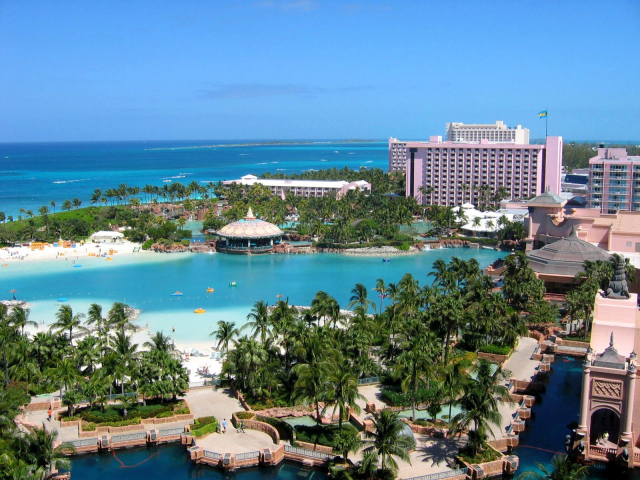
The Bahamas
The Bahamas and other Caribbean islands have created their own digital nomad visa called The Bahamas Extended Access Travel Stay (BEATS). The island authorities allow online application for this visa. The fee for a remote work application is 25 BSD (Bahamian dollars). It is worth noting that the currency of the Bahamas is equal to the US dollar. If approved, a fee for a permit to work remotely (1000 BSD) is required. This program is also suitable for students who study remotely.
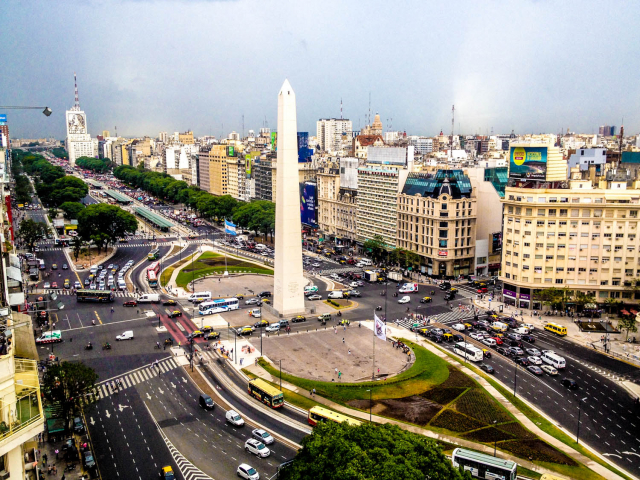
Argentina
The Argentine authorities introduced the digital nomad visa in May 2022. To obtain it, a work contract is required, as well as a document confirming the payment of salary or professional fees. Requesting a visa from the territory of the Russian Federation will cost $120. When obtaining digital nomad status in Argentina, the applicant must pay 30,000 pesos ($238). The visa is valid for 180 days, and its extension for the same period will cost 4,000 pesos ($32).
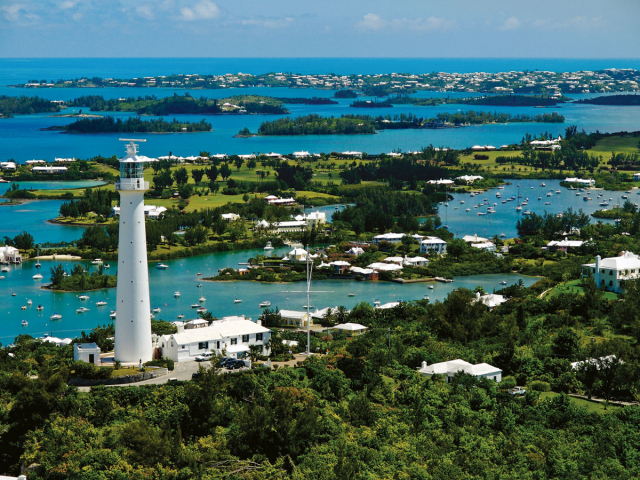
Bermuda
The Bermuda authorities provide digital nomads with a Work From Bermuda certificate, which allows them to stay in the country for a year. Then the permit is extended for another year. To obtain this visa, proof of employment or university education, confirmation of the availability of funds or provision of information about a permanent source of annual income are required. It is worth noting that there are no minimum income requirements in Bermuda. The registration fee for it is $263. At the same time, the Bermuda authorities give a digital nomad visa to freelancers and students, including those studying remotely. The registration fee for it is $263. At the same time, the Bermuda authorities give a digital nomad visa to freelancers and students, including those studying remotely.

Brazil
To obtain a digital nomad visa in Brazil, proof of income is required, which must be $1,500 per month. In case of its absence, the presence of $18,000 in a bank account is allowed. This visa is issued both outside the country and on its territory if a citizen came to Brazil on a tour package. The digital nomad visa, which costs 372 reais ($72), allows the applicant to stay in Brazil for a year. At the same time, 2,500 reais ($485) will be needed for the relevant certificates and collection of documents. A prerequisite for citizens of Russia is the presence of a birth certificate, according to which a certificate of parents can be obtained at the consulate of the Russian Federation. The Brazilian authorities pay special attention to this, since the names of the parents are proof of identity. The extension of the digital nomad visa costs the same amount as when applying for it - 372 reais.

Hungary
In Hungary, a special program is provided for digital nomads - the White Card, which allows them to obtain a residence permit. A prerequisite for obtaining this visa is the absence of an official job in Hungary, as well as the presence of a share in a Hungarian company. At the same time, the monthly legal income of a digital nomad must be equal to or exceed €2,000 six months prior to entry. This amount must be available throughout the entire period of stay in Hungary (this will require a certificate from the employer or from the tax office). Among other things, the employee must have a place of permanent residence (indicated in the rental agreement or in the document of ownership) and medical insurance. The validity period of the White Card is no more than 1 year, but it can be extended for another year. The cost of administrative services for the issuance of the White Card is €110. The issuance of a residence permit card will require another €60.

Georgia
In 2020, the Georgian authorities launched the Remote from Georgia program, designed for freelancers, full-time employees, or business owners. It provides for a visa-free stay in the country for 360 days (a passport is enough for this). Obtaining this visa requires the applicant to confirm his financial solvency. It is worth noting that the minimum monthly salary during the applicant's stay in Georgia must be at least $2000. Last year, the program was inactive, but from March 1, 2022, digital nomads can enter Georgia under simplified rules. This requires prior confirmation to cross the border. Currently, Russian citizens can stay in Georgia for a year without even having a digital nomad visa.

Iceland
The Icelandic authorities issue long-term visas to remote workers and their families. However, this program is intended only for those employees who do not intend to reside in the country for a long time. This visa requires the applicant to prove their monthly income of 1 million ISK ($7,275) or 1.3 million ISK ($9,460) if the applicant is a married couple. Remote workers in Iceland are not allowed to work for local employers. The digital nomad visa is issued for a period of up to 180 days. For its registration, a fee of 12,200 ISK ($88) is required. Once approved for a visa, the applicant must travel to Iceland to receive it in person. When applying for a visa, the employer must confirm that his employee is allowed to work remotely in Iceland. In addition, the applicant must attach an employment contract with salary information.
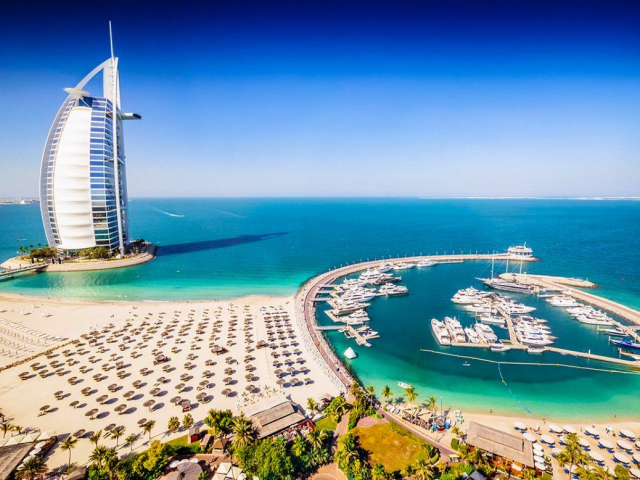
United Arab Emirates (UAE)
The UAE authorities issue visas for digital nomads, which allows them to open a bank account, get an Emirates ID and provide for the next of kin who do not have a visa. The rules for obtaining this visa are slightly different in each emirate. A prerequisite for obtaining a digital nomad visa is proof of income in any currency equivalent to $5,000. The first step in this matter is obtaining a freelance license worth 7000 AED ($1900), which is renewed annually. To obtain it, confirmation of the applicant's competence is required, for example, documents on education. After their approval, a Freelance entry permit is issued - a special visa for a period of 60 days, on which the applicant can enter the country to obtain a freelance visa. If at that moment the applicant is in the UAE, then he pays 780 AED ($212) for a status change. When applying, a bank statement is also required. The cost of a three-year visa is 3500 AED ($1000). After receiving it, an Emirates ID is issued, the cost of which is 875 AED ($238). If a remote worker's annual income is less than $51,050, then he does not need to register for VAT.

Norway
The Norwegian authorities grant a residence permit for partially remote work. For this, a so-called independent contractor visa is issued, according to which the applicant has a source of income abroad. This visa is issued for a period of two years. At the same time, the minimum income of a self-employed citizen must be at least €35,719 per year. In addition to the documents required for obtaining a visa, the applicant should take care of certificates confirming the availability of housing in Norway (own or rented). At the same time, a digital nomad visa requires documents confirming the status of an individual entrepreneur and the presence of a business created abroad. The peculiarity of obtaining a visa in Norway is that in order to obtain it, the applicant must have at least one Norwegian client.
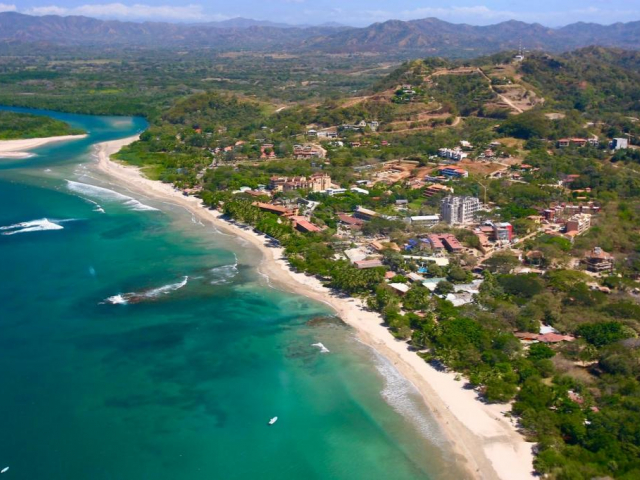
Costa Rica
The Costa Rican authorities issue a special visa to digital nomads called «Estancia». Obtaining this visa requires proof of a minimum stable income of $3,000 per month ($4,000 per family) from the previous year. An additional condition is annual medical insurance. The remote work visa is valid for 1 year, but can be extended for a similar period if the holder has spent 180 or more days in Costa Rica. The necessary conditions for obtaining Estancia are the applicant's work in a foreign company, running his own business or remote cooperation with clients from foreign countries. The official processing of these visas began in July 2022. The advantage for digital nomads, in particular foreigners, is tax exemption. At the same time, the income received by a freelancer from abroad will not be considered a source of income by local authorities. Costa Rica is currently experiencing a boom in digital nomad visa applications.
 Deutsch
Deutsch 
 Русский
Русский English
English Bahasa Indonesia
Bahasa Indonesia Bahasa Malay
Bahasa Malay ไทย
ไทย Español
Español Български
Български Français
Français Tiếng Việt
Tiếng Việt 中文
中文 বাংলা
বাংলা हिन्दी
हिन्दी Čeština
Čeština Українська
Українська Română
Română
